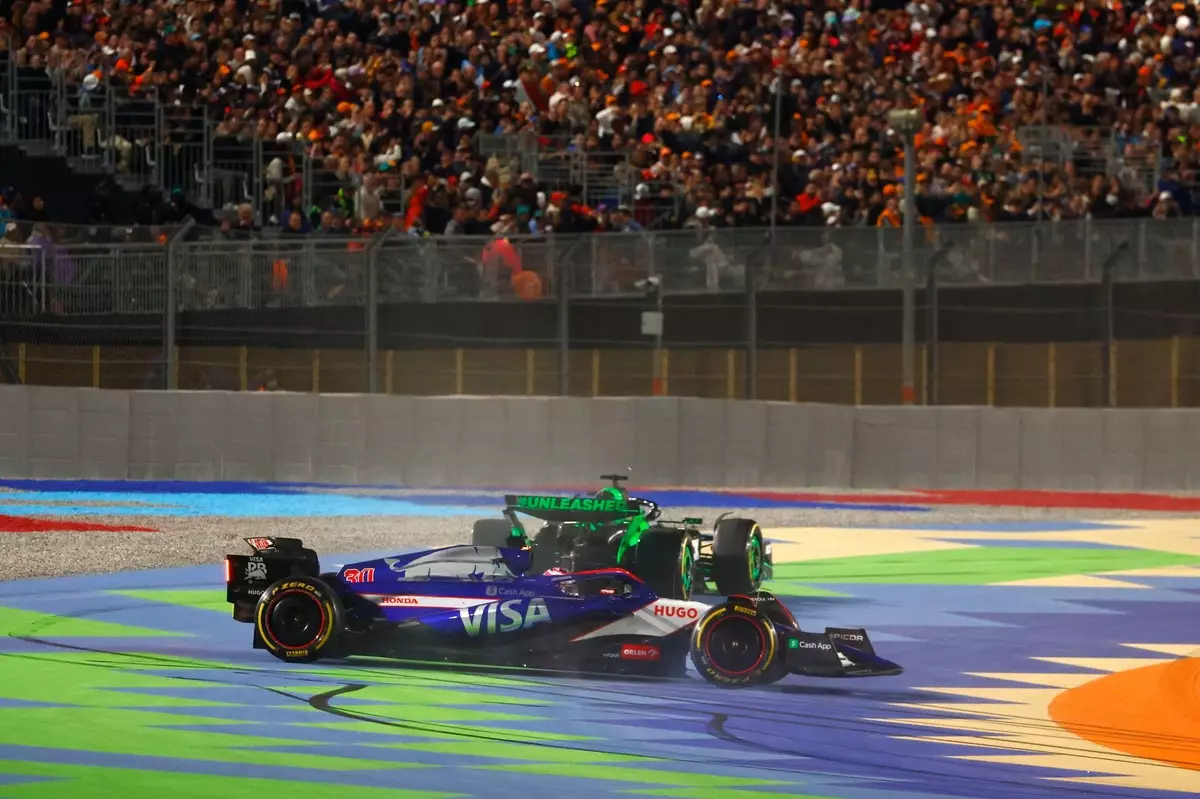During the thrilling yet tumultuous Qatar Grand Prix, an incident unfolded that would reverberate through the rest of the season, particularly for Valtteri Bottas and Liam Lawson. The race showcased not only the complexities of Formula 1 dynamics but also the weight of individual accountability in a sport that places immense pressure on its drivers. Lawson, who was at the helm of the misjudgment that pushed Bottas off-track, took full responsibility for the collision that marred what could have been a redeeming day for the Sauber team. With Bottas fighting for his first points of the season, the situation highlighted the fine line between aggression and recklessness in racing.
As the drivers lined up for the restart following a safety car period, tempers and tensions ran high, particularly for those in desperate need for points. Lawson, after a promising warm-up and preparing his tyres, aimed to capitalize on the opportunity to overtake. However, in his eagerness, he miscalculated the grip levels and found himself sliding wide into Bottas, ultimately causing both drivers to lose vital track positions. Lawson’s assessment of the situation post-race revealed his understanding of the incident’s implications: “It was my fault… Obviously, he did nothing wrong.” This apology, while commendable, is reflective of the harsh reality of racing—a single lapse can have ramifications beyond immediate standings.
For Bottas, the season has been a series of unfortunate events culminating in his record as the only driver to compete in all 23 races without scoring a point. As he pushed to secure valuable points for Sauber, his frustration became more palpable. Beyond the incident with Lawson, which he labeled as a turning point in the race, Bottas lamented the strategic miscalculations and timing of the safety car that further derailed his chances. “I think everything just went against me… the timing of the safety car was the worst for me, possible,” he stated, emphasizing a sentiment that resonates with drivers encountering a string of bad luck.
Bottas’ teammate, Zhou Guanyu, managed to secure Sauber’s first points of the season by finishing eighth, illuminating the contrast within the team dynamics. While Zhou rejoiced in the team’s modest achievements, Bottas remained plagued by his zero-points tally. His mixed feelings for Zhou’s success were compounded by his own bitter experience: “I’m happy for Zhou and for the team… But like I said, I’ve still got zero points, which is not great.” This duality of emotions encapsulates the competitive spirit racing fosters, where teamwork is essential, but personal glory remains the ultimate pursuit.
As the F1 circus gears up for the season finale in Abu Dhabi, both Lawson and Bottas are left grappling with their respective predicaments. For Lawson, who is relatively new to the top-tier racing scene, learning how to manage the pressures of competition is crucial. His initial grasp of accountability reflects potential growth for the future, urging him to refine his racecraft. The young driver has a canvas upon which he can paint his career, but incidents like the one with Bottas serve as harsh lessons in humility and responsibility.
Bottas, on the other hand, heads into the final race with a singular goal: to secure at least one point and shake off the season’s misfortunes. His innate talent and experience suggest that he is more than capable of achieving this feat, provided that racing luck and strategy align in his favor. “I have one race left… hopefully in Abu Dhabi we are going to fight as well,” Bottas stated, emanating determination that suggests he will not go down without a fight.
The Qatar Grand Prix revealed the highs and lows of competitive racing. Lawson’s admission of fault and Bottas’ ongoing challenges encapsulate a narrative of both personal struggle and team dynamics. As these drivers look toward their futures, the lessons learned from Qatar will undoubtedly influence their paths in the high-stakes world of Formula 1.

